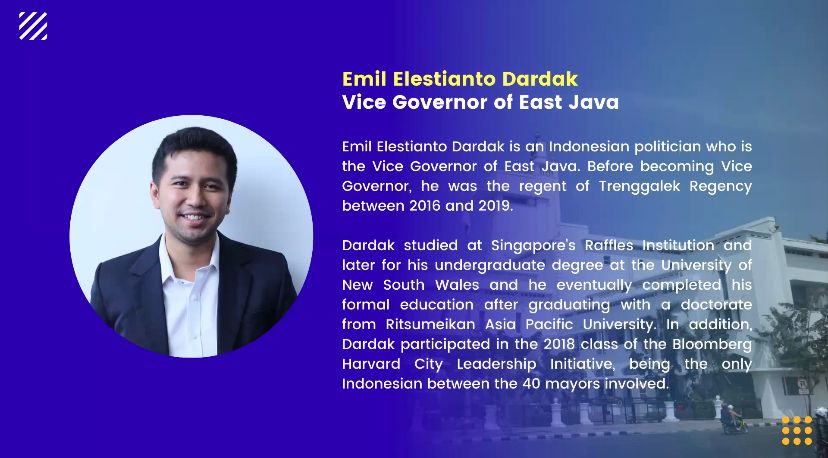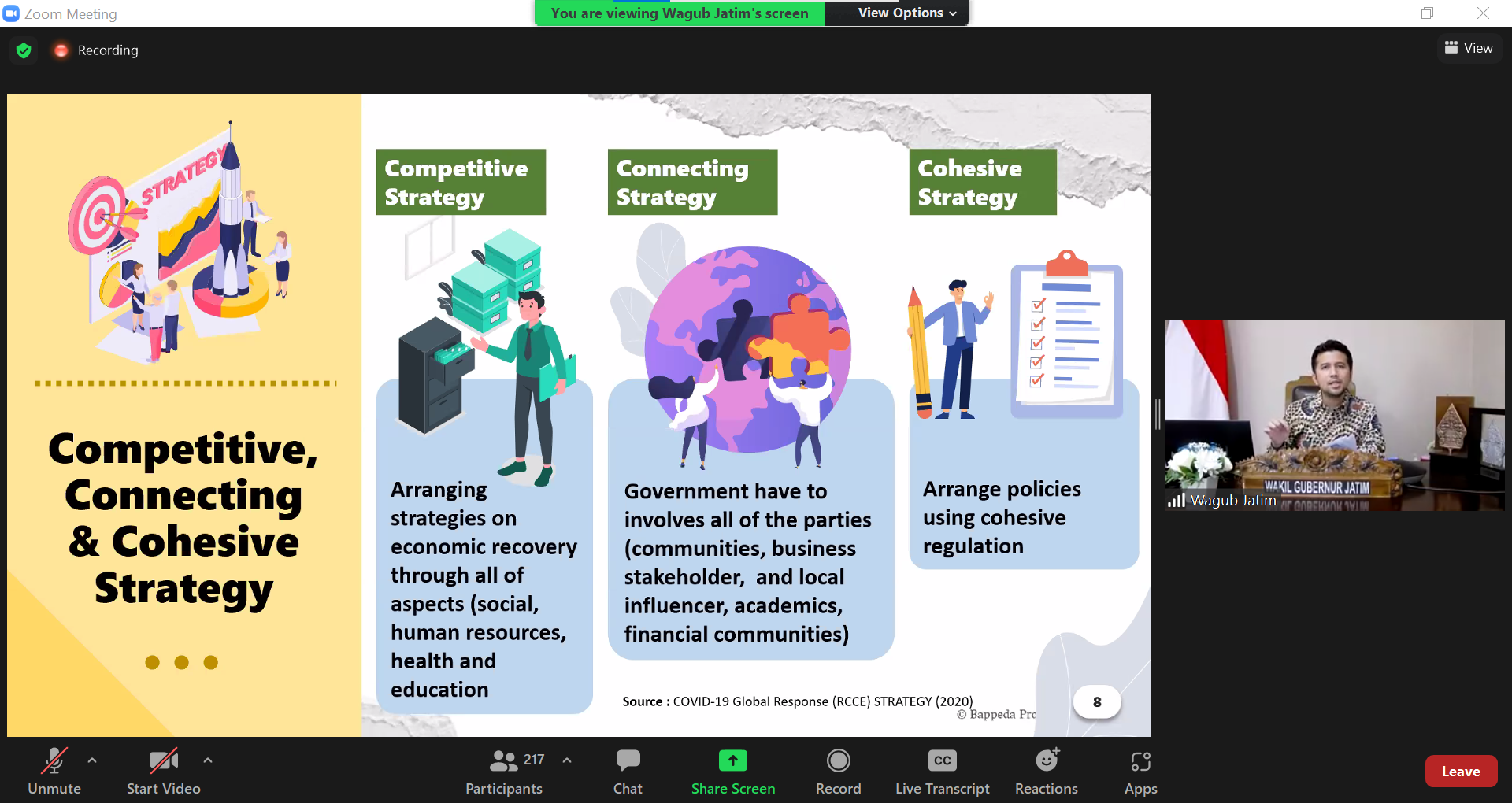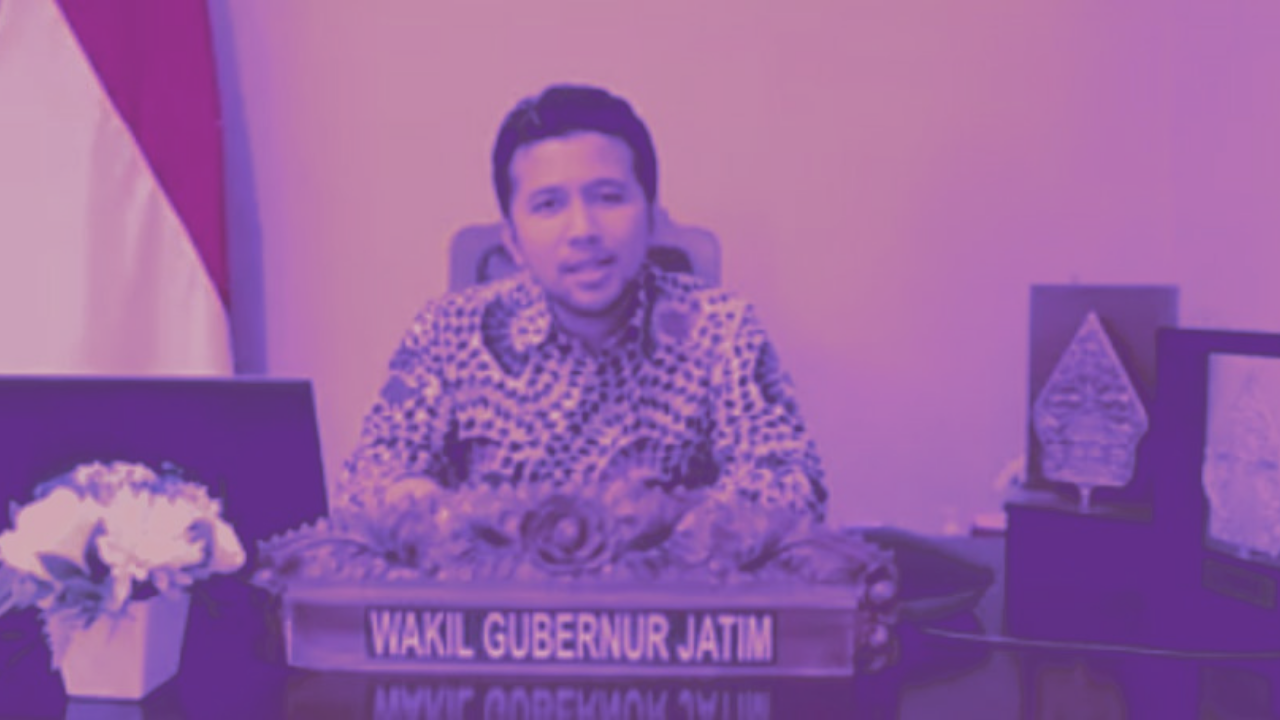SBM ITB started its Public Lecture of MBA Jakarta Campus by inviting Dr Emil Dardak, the Vice Governor of East Java, Thursday (10/2/2022). This lecture aims to give students an insight into the lecture from the government’s perspective about the potential and strategy of Indonesia, particularly East Java. The lecture was opened by the Director of SBM ITB Jakarta Campus, Yudo Anggoro.
 Emil Elestianto Dardak is an Indonesian politician currently elected as the Vice Governor of East Java. Before his current position, Dardak was the regent of the Trenggalek Regency between 2016 and 2019. His recent study was in Singapore’s Raffles Institution. He obtained an undergraduate degree from the University of New South Wales and a doctorate from Ritsumeikan Asia Pacific University. In addition, Dardak participated in the 2018 class of the Bloomberg Harvard City Leadership Initiative, being the only Indonesian among the forty mayors involved.
Emil Elestianto Dardak is an Indonesian politician currently elected as the Vice Governor of East Java. Before his current position, Dardak was the regent of the Trenggalek Regency between 2016 and 2019. His recent study was in Singapore’s Raffles Institution. He obtained an undergraduate degree from the University of New South Wales and a doctorate from Ritsumeikan Asia Pacific University. In addition, Dardak participated in the 2018 class of the Bloomberg Harvard City Leadership Initiative, being the only Indonesian among the forty mayors involved.
Dardak first opened his lecture by providing insight about East Java’s current position and potential as the centre of gravity following its position as a second-largest economic contributor to Indonesia’s GDP and as the second-largest economic contributor in Java Island with a contribution of 25.01%. Dardak also stated that during the pandemic, 59.5% of Small and Medium Enterprises (SMEs) and 53.7% of BMB are normally operating in East Java according to its operational status and business scale. On the other hand, 84% of SMEs and 85% of BMB tend to decrease since the pandemic based on the business scale and revenue development.
 Responding to the situation in East Java, Dardak explained several strategies implemented by the government: Competitive, Connecting, and Cohesive Strategy. This strategy was designed based on the Global Business Environment Facts, comparing Global Companies with GD and comparing the revenues of the ten largest global companies with domestic products of certain national products. In his lecture, Dardak also explained rethinking globalization (re-globalization) with its opportunities and challenges, drivers, and lastly, the potential and trends. “Use your competence not to intimidate, but to be helpful,” closed Dardak.
Responding to the situation in East Java, Dardak explained several strategies implemented by the government: Competitive, Connecting, and Cohesive Strategy. This strategy was designed based on the Global Business Environment Facts, comparing Global Companies with GD and comparing the revenues of the ten largest global companies with domestic products of certain national products. In his lecture, Dardak also explained rethinking globalization (re-globalization) with its opportunities and challenges, drivers, and lastly, the potential and trends. “Use your competence not to intimidate, but to be helpful,” closed Dardak.




